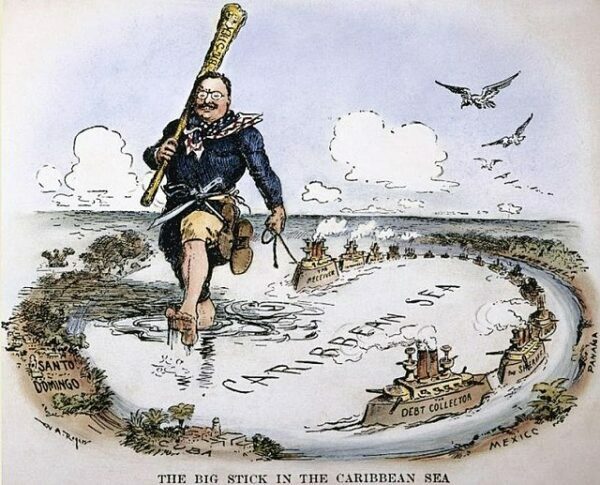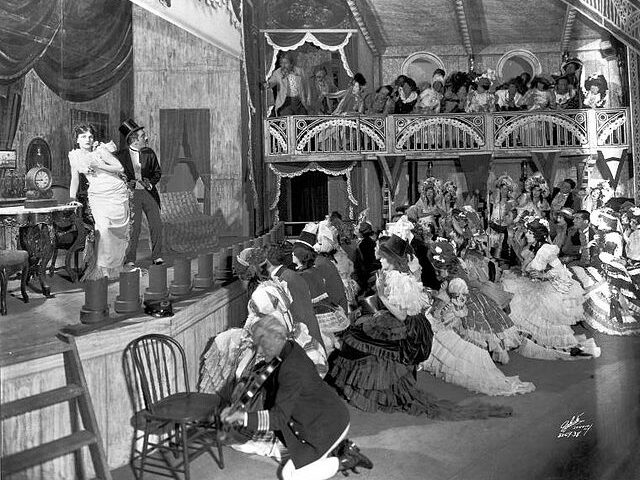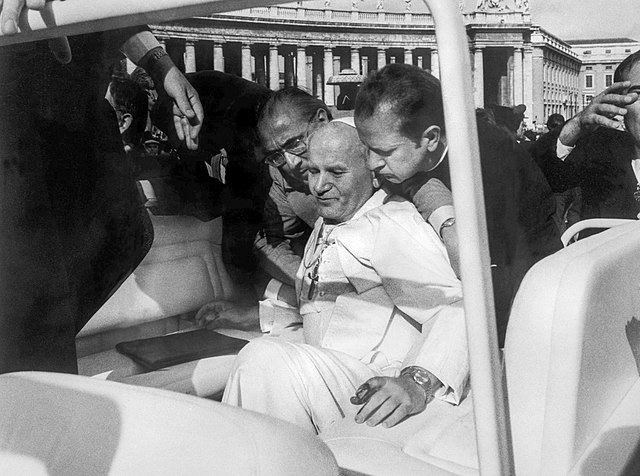On September 2, 1901 one of the most famous foreign policy sayings in American history came out of the mouth of one of the nation’s legendary leaders. Just two weeks before ascending to the presidency, Roosevelt outlined a distinctive foreign policy approach that would come to be epitomized by the famous phrase, “speak softly and carry a big stick.”
Big Stick Diplomacy was born.
TR uttered his most famous phrase while speaking at the Minnesota State Fair. Standing in front of the crowd, the future president said, “Right here let me make as vigorous a plea as I know how in favor of saying nothing that we do not mean, and of acting without hesitation up to whatever we say. A good many of you are probably acquainted with the old proverb, ‘Speak softly and carry a big stick – you will go far.’ If a man continually blusters, if he lacks civility, a big stick will not save him from trouble, and neither will speaking softly avail, if back of the softness there does not lie strength, power. In private life there are few beings more obnoxious than the man who is always loudly boasting, and if the boaster is not prepared to back up his words, his position becomes absolutely contemptible. So it is with the nation. It is both foolish and undignified to indulge in undue self-glorification, and, above all, in loose-tongued denunciation of other peoples. Whenever on any point we come in contact with a foreign power, I hope that we shall always strive to speak courteously and respectfully of that foreign power.
Let us make it evident that we intend to do justice. Then let us make it equally evident that we will not tolerate injustice being done us in return. Let us further make it evident that we use no words which we are not which prepared to back up with deeds, and that while our speech is always moderate, we are ready and willing to make it good. Such an attitude will be the surest possible guarantee of that self-respecting peace, the attainment of which is and must ever be the prime aim of a self-governing people”
These words came to shape the way Teddy Roosevelt viewed the world. The essence of his foreign policy strategy was simple yet profound. As president, he believed diplomacy and negotiation should always be the first resort when dealing with other nations. “Speak softly” represented the idea that leaders should use tact, restraint, and measured language when engaging in international discourse. Diplomacy, he believed, could prevent misunderstandings, reduce tensions, and build alliances in a world rife with rivalries.
However, Roosevelt also recognized the importance of a robust and credible military as a deterrent against potential adversaries. This aspect was encapsulated in the second part of the phrase, “carry a big stick.” It symbolized the notion that having the means to back up one’s words with action could discourage aggression and promote peace through strength. A nation perceived as weak, Roosevelt argued, might be more vulnerable to threats and coercion.
Throughout his presidency, Roosevelt deftly applied this “speak softly and carry a big stick” philosophy. He successfully negotiated an end to the Russo-Japanese War, earning the Nobel Peace Prize for his efforts. Simultaneously, he oversaw a significant modernization of the U.S. Navy, ensuring that America had the military muscle to support its diplomatic endeavors.
Roosevelt’s approach continues to influence U.S. foreign policy and is cited as a timeless example of a balanced and pragmatic strategy. It reminds us that while diplomacy is the preferred path to resolving conflicts, having the means to back it up when needed is equally essential. It underscores the importance of projecting strength as a deterrent to potential adversaries while striving for peaceful coexistence in a complex and interconnected world. The legacy of “speak softly and carry a big stick” endures as a testament to Theodore Roosevelt’s vision and leadership on the world stage.






